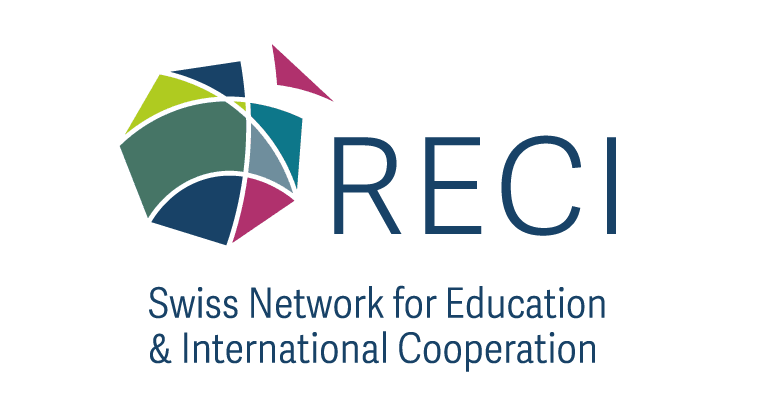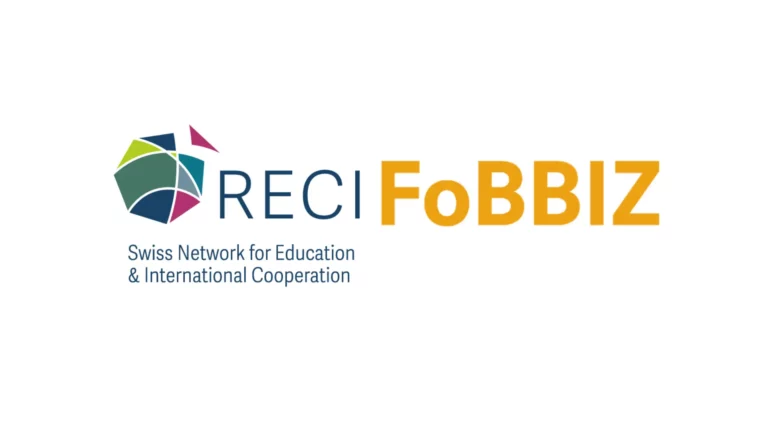RECI Position Statement on International Cooperation Funding 2025-2028
RECI (www.reci-education.ch) is the Swiss Network for Education and International Cooperation. With its 40 members—non-profit Swiss organisations, academic institutions, foundations, and professionals—RECI is committed to the right to quality education and lifelong learning for everyone worldwide.
We are deeply concerned about the proposed drastic cuts to the international cooperation (IC) budget for the years 2025-2028.
Following the consultation on the new IC strategy, some points from our position statement on strengthening education in cooperation have been adopted. We are pleased about this, as education is not only a fundamental human right and a development goal but also a condition and a means for all human, social, economic, and democratic development.
Swiss international cooperation is a success model that we can be proud of!
Swiss international cooperation is effective. It directly reaches millions of people affected by poverty, hunger, wars, or prolonged crises, empowering them to take action themselves, to build and develop their community, region, and country. This is the case, for example, of A., 12 years old, from Syria, who, thanks to Swiss support, can learn and go to school again in Lebanon with thousands of refugee peers. A. has regained hope and dreams. He wants to become an engineer when he grows up.
Hundreds of thousands, even millions¹, of children, adolescents, and young adults like A. must fear, with the threat of a reduction in the Swiss IC budget, that they will no longer be able to attend school, as schools would simply be closed, and long-term training programmes interrupted.
Worldwide, Swiss development cooperation is praised for its particular care, effectiveness, and sustainability. It is long-lasting, based on professionalism, exceptional expertise, and established processes that meet the highest standards. This has enabled the establishment of stable and trustworthy institutional relationships and partnerships, and the acquisition of valuable knowledge about the contexts of different countries.
Successful projects, long-standing partnerships, and institutional relationships would be on the verge of disappearing if funds were reduced, and this added value, built over decades, would be destroyed. It is not possible to simply put such partnerships on hold for a few years.
International cooperation is an indispensable pillar for the effectiveness and security of Switzerland, which also supports the exceptional position of Swiss diplomacy. The fruits of international cooperation, particularly education, are the foundation on which Switzerland can strengthen peace in the world and its own security: people with solid education can contribute to building their local communities and economy, creating conditions that reduce migratory pressure. Well-educated individuals are informed citizens who can manage conflicts constructively. The education programmes and projects supported by Swiss IC specifically encourage this type and quality of education.
The proposed cuts to the international cooperation budget would cause irreparable damage to Switzerland.
To ensure that the objectives outlined in the IC 2025-2028 message remain achievable, the funds allocated for their implementation must remain the same as in previous years, adjusted to account for inflation. This requirement aligns not only with the majority of votes expressed during the consultation but also with the wishes of the Swiss population: according to an annual survey by ETH Zurich, 58% of the Swiss population is in favour of increasing the funds allocated to international cooperation, and 30% are against reducing the funds.²
The necessity to rebuild Ukraine arises from an extreme and exceptional situation. In line with this exceptional nature, funding should be provided through an additional fund, as requested by the vast majority of voices expressed in the public consultation.
___________________________
¹ It is estimated that RECI members’ education projects alone reach at least 1 to 2 million children, young people and adults every year. To these must be added the beneficiaries of the SDC’s bilateral cooperation, humanitarian aid and multilateral cooperation.
² While only 26% are in favour of an increase and 40% in favour of maintaining the army budget.



